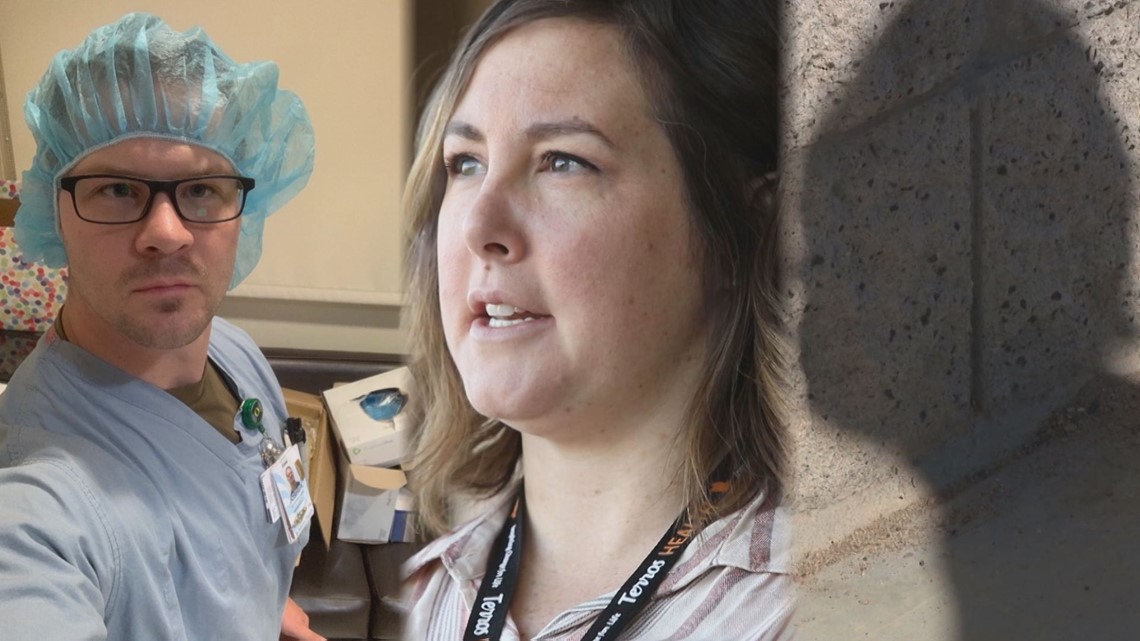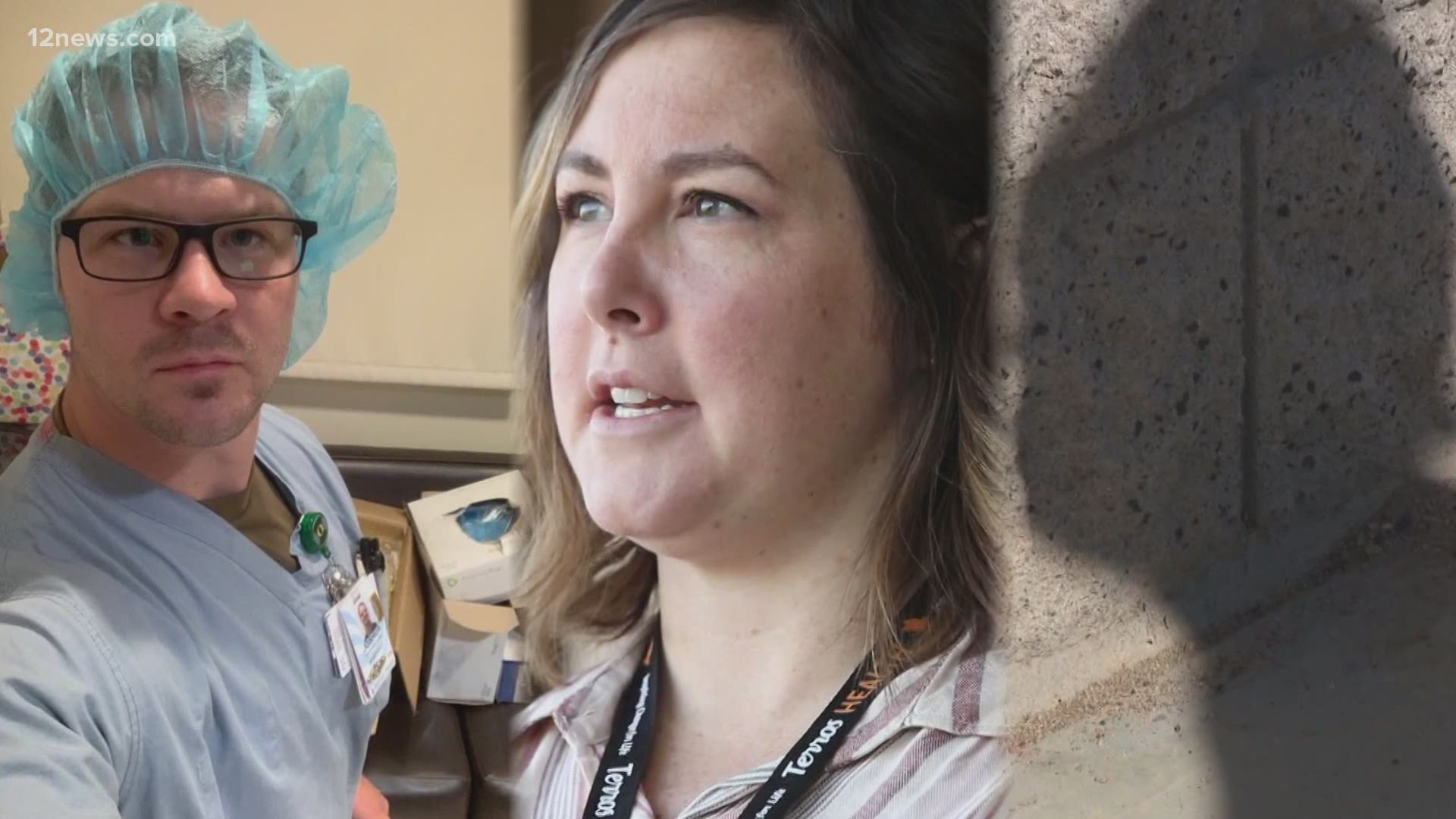PHOENIX — Nurses are facing all kinds of battles when it comes to working in health care, whether they're caring for coronavirus patients or not.
From financial strains to new procedures or treating mental health, the pandemic is affecting their everyday lives too.
Josh Hite is a charge nurse at Banner Thunderbird on the COVID unit. Hite took viewers through his shift via video diary.
“OK, back from huddle," Hite said in his video diary. "Trying to see what we’re looking at on the floor. We’ve got a few discharges coming up and we’ve got two potential patients coming up.”
For Hite and his team, there’s checking assignments, supplies, patients and beds.
“We go to bed crunch and try to see how many open beds we have, potential discharges and upgrades for the overall hospital," Hite said.
While caring for his patients, extra precautions are top of mind.
“If you’re taking three patients, one may be positive, two are still a rule out so you have to keep aware that you keep that separation, that distance between those three patients," Hite said.
There are healing stories on Hite's floor, but sometimes they have to share the hardest news too.
“We have one patient that passed," Hite documented through his video diary.
"We are going to call the family," he said. "We have the proper paperwork going."
And while caring for the patient, this COVID team is also caring for each other.
“Myself or another nurse will volunteer, you step out, take a breather, you reset," Hite said. "Or even after shift, our manager’s door is open for any type of support.”


Support is weaving into COVID-19 care, including mental health. Danielle Searor is a psychiatric nurse practitioner in Mesa.
“A disruption in routine has caused a lot of change to our depressive symptoms, the anxious symptoms," Searor said. "Kind of that internal restlessness.”
Searor video diaries her shifts at Terros Integrated Healthcare as she guides her patients through pandemic life changes.
“Talking to each other and just expressing that it’s OK to not be OK," Searor said. "Sometimes you just need someone to trust to tell you that and I’m here for it.”
Searor and her team are caring for patients while shifting gears at the office too.
“Where we were an in-person clinic, we’re now operating very much virtually," Searor said in her video diary. "So, nothing about what we’re doing is normal, but it’s our new normal and it’s kind of fast tracked the world of telemedicine.”
“It’s just being more reachable right now because you don’t have to leave your home," Searor said. "Everybody has been affected.”
Searor adds that connection is key.
“Reach out to the people around you, so even though we can’t be together, technology has made it so we are able to connect on a level that if this happened 10 years ago, we wouldn’t be as able to be in touch," Searor said.
And while some Valley health care professionals are staying busy, a nurse who wants to remain anonymous said they have faced financial uncertainty. They say hours at their job have been cut.
“It’s money out of my pocket," they said. "It’s my kids’ grocery money. You have your budget and you count on it and it’s just gone."
The Arizona Hospital and Healthcare Association reported in April that hospital revenues were down 30 to 40 percent. The association pointed that reduction to the cancellation of elective procedures and ER visits.
Elective surgeries resumed in Arizona on May 1.
“I cannot fault the hospitals because they’re trying," the nurse said.


